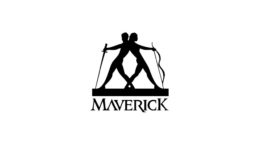The following MBW blog comes from respected artist manager, Jess Keeley (pictured), who manages Shania Twain, with Scott Rodger, as part of Quest Artist Management / Maverick.
Recently our company Zoom meetings always end with the same question: What’s next?
As a management team we ponder the greater cultural impact that will inevitably result from this complete change of life as we know it.
We know we need to rethink what we relied on in the established music industry. As the world rightfully focuses on supporting our frontline essential providers in this crisis, we’re also aware of the many who have lost their positions, been furloughed, and who spend their days also asking… what’s next?
Those of us in creative fields, who are self-employed or seasonally employed, are facing an uncertain and stressful future. When is ‘the new normal’ starting? How do you have confidence in a future you haven’t imagined yet?
The question of job security is laid bare in times of such critical change, both when it affects the entire world and when it feels more personal.
As an artist manager I was recently fired by a client while on maternity leave. I’m unfortunately very familiar with this feeling: I have two children, and this has happened to me exactly twice.
“Within the first three months of both my children’s lives I was fired by long-term clients. It’s as bad as it sounds.”
Within the first three months of both my children’s lives I was fired by long-term clients. It’s as bad as it sounds.
You are holding a newborn and receive word that your artist needs to “have a chat”. They give reasons which are unrelated to your new baby, but the timing is too specific.
It’s hurtful, incredibly stressful and unfortunately predictable. And the part that really stings? In my case, both of the artists in question are women.
Management is the most important relationship to the health of the artist’s career. Like all relationships, trust is vital in this dynamic.
As a manager, you are both the nurturer and the bad guy, a dedicated advocate and supporter of the vision.
It’s a role that takes the bulk of the emotional low points which inevitably come with choosing to pursue music as a career.
“I made the decision to take my two-week-old newborn to an artist’s concert, bundled in his car seat backstage, his little ears covered by oversized headphones.”
The riskiest and most time consuming job in the artist’s team, your business is subject to fluctuating income streams, volatile artist behaviour and competitive environments. The pressure to maintain appearance and attention, or risk potentially losing your client, is ever-constant.
I once made the decision to take my two-week-old newborn to an artist’s concert, bundled in his car seat backstage, his little ears covered by oversized headphones. With my limbs still aching from giving birth 14 days previously I showed up and declared of course I was fit to be standing here at this open air venue for three hours – because that is what is expected and what it takes to be a manager.
Ultimately, the artist/manager relationship is based on a trust which tends to flow in only one direction.
As we are all now balancing our home life and work life in a more immediate way, we’re seeing the realities of our societal choices close up. Those who are now sharing their workspace with babies and toddlers are having to show the honest work that goes into having a family.
Zoom meetings are interrupted by needy toddlers, women tilt cameras away while breastfeeding (me). For most of us on this side of the music business, our family and work are intertwining in a way we have always tried to avoid.
“our family and work are now intertwining in a way we have always tried to avoid.”
All of this balancing has caused me to really reflect on my recent firing. What systemic bias led these artists to decide that maternity leave was an acceptable and reasonable time to end a relationship?
Why did they feel that I was no longer doing the job I had committed to doing?
The insecurity we all have around the availability, commitment and flexibility of the working mother needs critical addressing. Without the (often already inadequate) protections of unions, employers and Human Resources, self-employed mothers are juggling the needs of their business and clients against their own physical and mental well-being.
There is no guarantee that your job will be kept for you if you take time off, or if your client will be willing to wait – satisfied with the actions you’ve taken to maintain your workload. In an incredibly personal position like artist management you need to step away, and this is rarely seen as a positive thing.
“self-employed mothers are juggling the needs of their business and clients against their own physical and mental well-being.”
When your job is reliant on maintaining relationships, managing the egos and emotional reactions of creative people, and being an ever-reliable advocate for your artist, you can’t just turn to a maternity management stand-in.
I often get called because an artist is interested in finding “female management”. The posturing activism of the creative industry covers shallow dedication to the real causes; female employees come with distinctly biological decisions.
I made the conscious professional choice to only manage the careers of women, believing that this representation (woman to woman) was much needed within the music industry.
All the clichés that I never imagined I would be susceptible to came true when I was professionally punished for making the choice to have children.
If the work you do prior to pregnancy is solid, it will continue to be throughout that experience and after. The way people treat your work will change, though, because now it will be seen through a ‘mom’ filter.
The inevitable need to shift focus and take time off is respected only as lip service, not as a life experience which will invariably make you a better, more efficient worker.
If we truly respected the process of becoming a parent as a learning and enhancing experience it would be considered as valuable as speaking another language or being proficient in Excel.
“If we truly respected the process of becoming a parent, It would be added to résumés as a set of life skills which makes you more empathetic, adaptable and focused. Employers would put in job descriptions that “parental experience is preferred”.
It would be added to CVs/résumés as a set of life skills which makes you more empathetic, adaptable and focused. Employers would put in job descriptions that “parental experience is preferred”.
We are now in a period of forced reflection, facing our families and employees on a hyper-personal level.
It’s time to acknowledge that our collective attitude towards the importance of child-bearing and child-raising needs attention. We have to challenge our biases as we rebuild.
Our next steps and examples will reshape this changed world. We need to mould it in the right image to succeed.Music Business Worldwide





